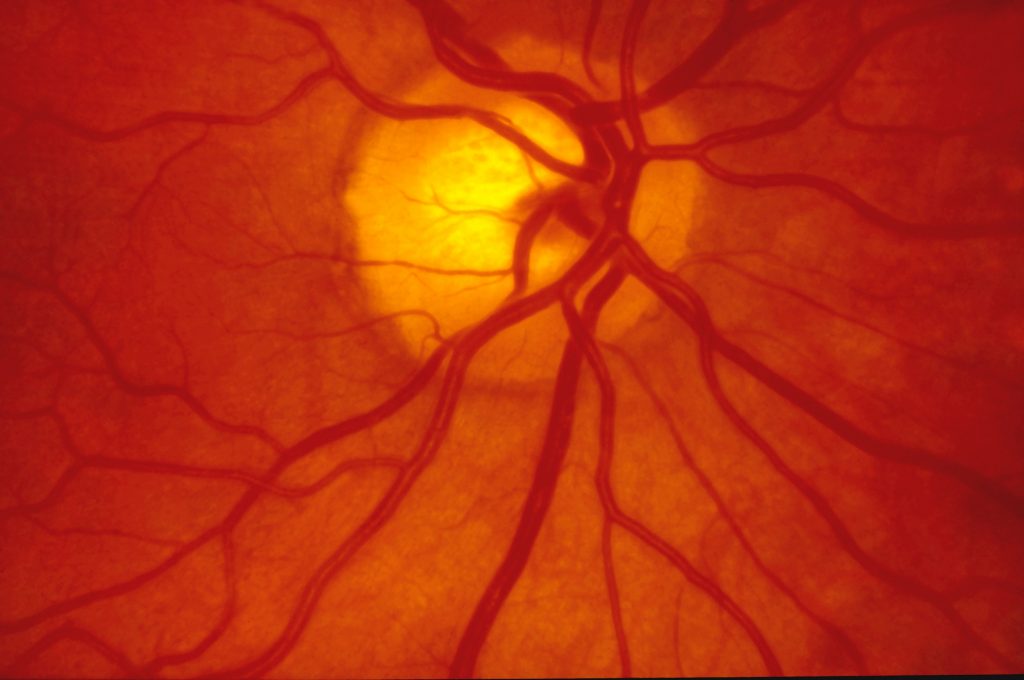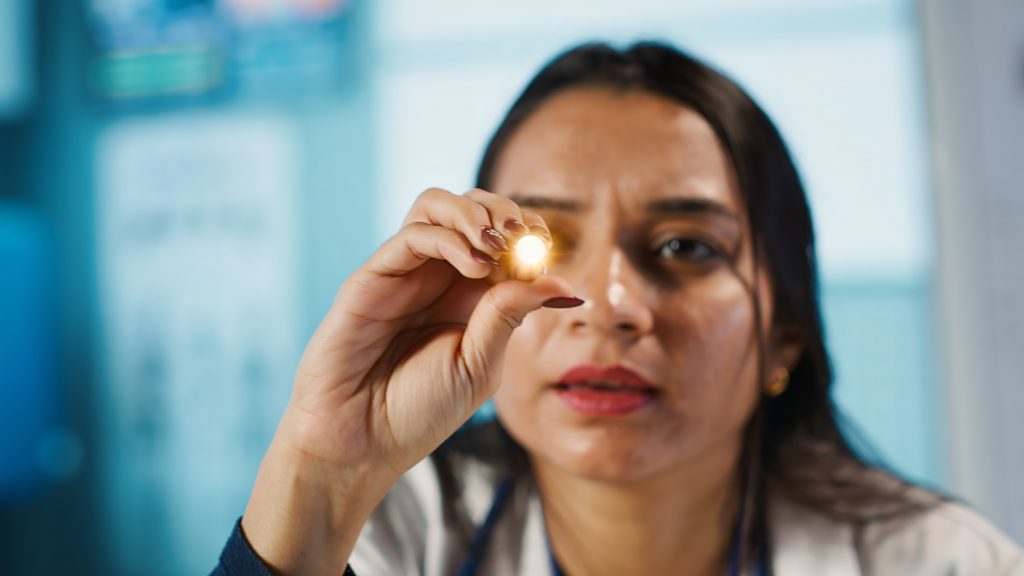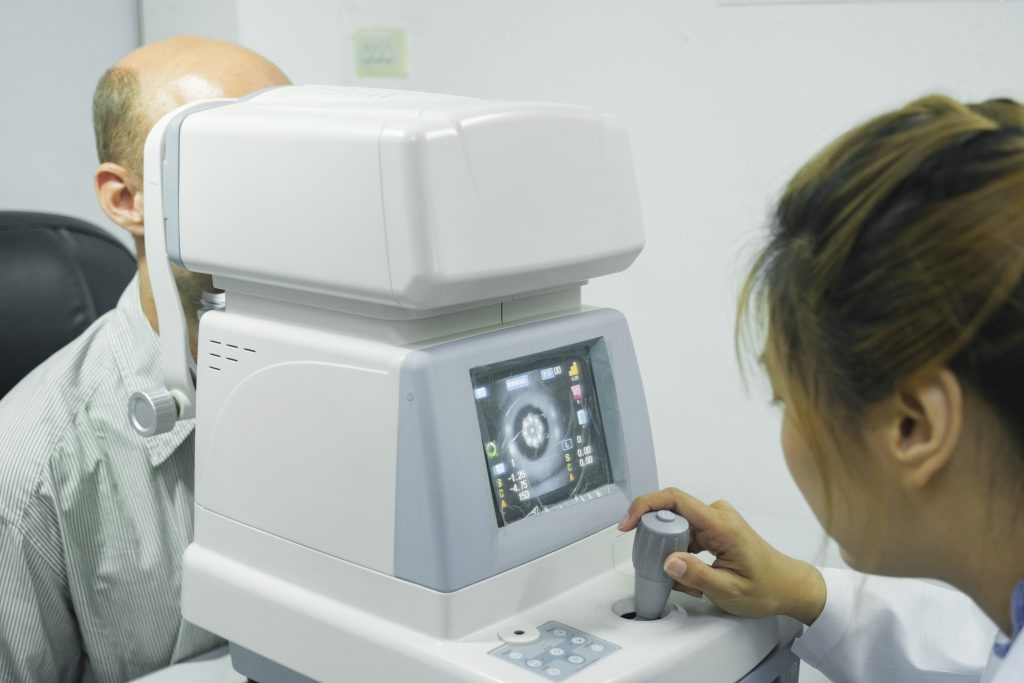There are millions of people worldwide who have diabetes, and one of the most dangerous complications of diabetes is Diabetic Retinopathy, which can destroy the blood vessels in the retina gradually and lead to blindness without warning. Early detection and treatment are extremely important in Singapore to avoid causing permanent vision loss. We offer comprehensive diagnosis and personalized treatment programs for people with diabetes at the Novena Bladeless Cataract Surgery & Eye Specialist Centre. We help people with Diabetic Retinopathy to manage their condition better using years of skills and the latest technology. We also keep track of other eye conditions, including macular degeneration Singapore, to make sure that their eyes are healthy and that they maintain a high quality of life.

Learning About Diabetic Retinopathy
Diabetic Retinopathy happens when the excess glucose levels destroy the small blood vessels in the retina, which is the light-sensitive tissue at the back of the eye. The destroyed blood vessels may leak fluid or bleed eventually, leading to changes or losing your vision. During the early stages, the condition tends to develop with no noticeable signs.
Routine eye tests are required since it does not show any symptoms. Complete retinal checks with the latest imaging technology are offered to patients at the Dr. David Goh Eye Specialist Centre, such that one is able to diagnose early and get treated accordingly.
| Stage of Diabetic Retinopathy | Description | Possible Symptoms |
| Mild Non-Proliferative | Small areas of swelling in blood vessels (microaneurysms). | Often none at this stage. |
| Moderate Non-Proliferative | Blood vessels may swell and distort, affecting retina circulation. | Blurry vision may begin. |
| Severe Non-Proliferative | More blood vessels become blocked, depriving the retina of oxygen. | Increasing vision problems. |
| Proliferative Retinopathy | New, fragile blood vessels grow and may leak or bleed. | Floaters, vision loss, or blindness. |
Who Is at Risk and What Are the Risk Factors
Some factors make you more likely to get Diabetic Retinopathy, such as:
- Duration of diabetes: Longer disease history increases risk.
- Inadequate control of blood sugar: Elevated glucose levels at all times speeds up damage.
- High blood pressure and cholesterol: can make retinal status worse.
- Pregnancy: Women with diabetes will often notice changes in the retina first.
- Family history: Genetics may play a factor.
Following these risk factors and keeping oneself healthy, along with follow-up appointments, can lower the risk of severe eye problems.
Symptoms of Diabetic Retinopathy
Many different symptoms can occur in people who have diabetic retinopathy, but in most instances, the initial signs do not display any. Some common warning signs are:
- Blurry or fluctuating vision
- Dark spots or objects that float in your eyes
- Hard to see at night
- Vision loss suddenly occurs in advanced stages.
Dr. David Goh’s office conducts thorough eye examinations to identify these changes at an early stage. Catching the condition at an early stage is a big difference in result, especially when paired with present treatment methods.
The Relationship Between Diabetic Retinopathy and Macular Degeneration

People with diabetes are also more likely to develop other eye problems, including macular degeneration. This condition affects the macula, the part of the eye responsible for sharp, central vision and can worsen with age or changes in the blood vessels. Macular degeneration is a major health concern worldwide, that’s why understanding the condition and recognising the signs early is so important, especially for individuals already managing diabetic eye issues.
The regular follow-ups verify macula alterations are recorded on time so macular degeneration therapy can be started right away if necessary. Comprehensive care of Diabetic Retinopathy and macula is provided by Dr. David Goh’s team to preserve vision.
Treatment of Diabetic Retinopathy
The severity and degree of retinal changes will determine the treatment diabetic retinopathy requires. Our office offers advanced treatments specially prepared for every patient:
- Laser treatment closes leaking blood vessels and prevents new bleeding.
- Anti-VEGF injections stop abnormal growth of blood vessels and decrease swelling in the retina.
- In the more complex cases, surgery called a vitrectomy cleanses the eye of blood or scar tissue.
- Controlling your lifestyle, keeping blood sugar, blood pressure, and cholesterol under control is better for the eyes long term.
Dr. David Goh blends medicine with technology to provide quality, safe care and personalized advice on the best course of healing and maintaining health for each patient.
Why Regular Exams are Important

Diabetic Retinopathy requires patients to continue seeing their doctor even after treatment. Regular follow-up will detect new changes early, prevent them from getting worse, and treat associated problems like macular degeneration. Regular follow-up visits at Dr. David Goh clinic includes a scan of the retina and eye tests, looking out for changes over time.
Our active approach enables the patients to have healthy eyes and minimizes chances of losing vision altogether. Individuals are also given personal instructions on how to live a healthy life so that their retina stays healthy for years to come.
Steps to Take to Save Your Eyes
Prevention of Diabetic Retinopathy is primarily dependent upon treatment.
Some of the main strategies are:
- Keeping blood sugar levels within healthy limits
- Maintaining blood pressure and cholesterol levels in balance
- Booking appointments for regular eye checkups
- Following a healthy diet rich in vitamins and antioxidants
- Avoiding smoking and excessive drinking
These measures, along with constant monitoring of the macula, keep patients who have both Diabetic Retinopathy and macular degeneration risks at bay from developing issues and achieving better outcomes.
Why Choose Dr. David Goh?
Dr. David Goh is one of Singapore’s leading eye doctors. He is highly trained and skilled to treat complex retinal issues. He has his training in the UK and a glaucoma fellowship from Moorfields Eye Hospital. He uses his international knowledge and local knowledge to deliver world-class care.
Patients who visit Dr. Goh are offered:
- Advanced Diagnostic Technology: Diagnosing changes in the retina and macula that signal diabetes early on in the process.
- Personalized Treatment Plans: Treatments that are designed to work within the health and lifestyle of each patient.
- Full Eye Care: Treating diabetic retinopathy, macular degeneration, and other eye diseases that are related.
- Proven Track Record: Thousands of successful cases, so high levels of care and safety.
His person-centred approach to ensuring that every single one of them gets advice, comfort, and treatment that will make their eyes healthy for many, many years to come.
Make the First Move
You do not have to be blinded by diabetes. In order to keep your eyes healthy, you need to detect diabetic retinopathy early, check it frequently, and get proper treatment. Singapore patients receive individualized treatment for both diabetic retinopathy and macular degeneration at the Dr. David Goh Eye Specialist Centre. This renders their retinal condition comprehensively controlled.
If you have diabetes or are facing a change in your vision, book an eye exam right away. Dr. David Goh helps patients preserve their vision and health with state-of-the-art equipment, four decades of practice, and a patient-centric approach.
📍 Location: Novena Medical Center, Singapore
🌐 Website: www.drdavidgoh.com.sg
📞 Phone: +65 6734 8088
Early action saves vision. Trust Dr. David Goh for specialised care in Diabetic Retinopathy and macular health.
 Tasselline | Latest Articles By Singaporeans, for Singaporeans Article Site for Singaporeans
Tasselline | Latest Articles By Singaporeans, for Singaporeans Article Site for Singaporeans